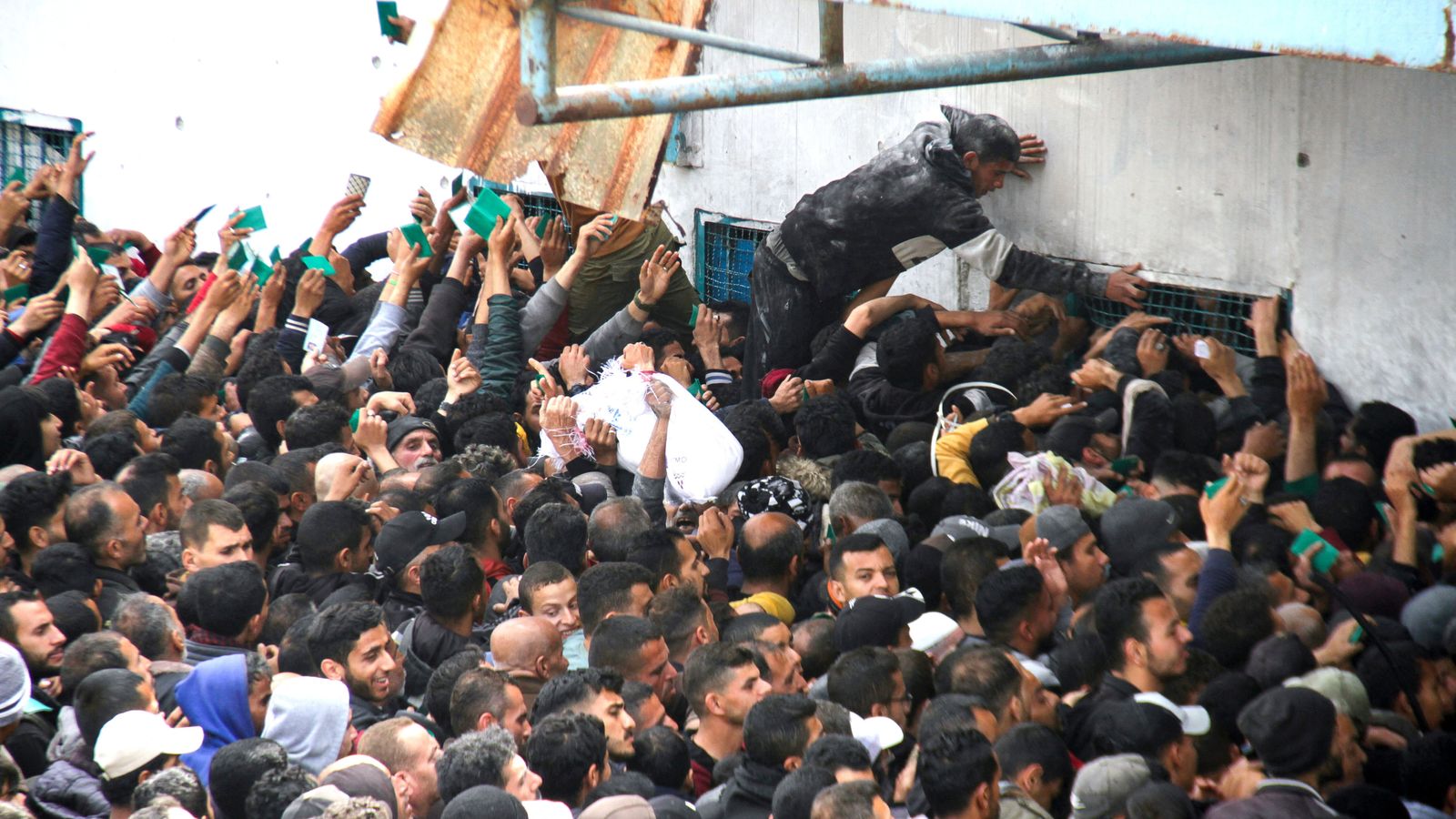The three-point announcement to ease aid flows into Gaza represents the most significant move by Israel since this conflict began six months ago.
It follows a call between President Joe Biden and Prime Minister Benjamin Netanyahu.
It was a tense, challenging conversation I am told – but not one in which any direct ultimatums were issued by the Americans.
Please use Chrome browser for a more accessible video player
The US vibe was more “you’re making it harder and harder for us to support you” than “do this, or else”.
The Biden-Netanyahu relationship has been increasingly tested – and my sense is this call represented the most strained moment yet.
Biden’s levers to effect change are limited, but these announcements represent a real moment of change.
We don’t yet have a confirmed timeline for when the three measures will become a reality, but I am told it is likely to be days not weeks.
Israel to open routes for humanitarian aid into Gaza – after being urged to by Joe Biden
‘A horrifying increase in the number of kids’: Long lines for watery soup amid fears of mass starvation
Israel to open routes for humanitarian aid into Gaza – after being urged to by Joe Biden
First, Israel’s southern port of Ashdod is to be authorised to receive aid for Gaza. This alone will be a game-changing moment. Remember the Americans had been forced to announce the construction of a temporary port off the Gaza shoreline to receive aid. Now, it can come from Cyprus into a fully functioning port.
Second, the Erez crossing from Israel into the northern Gaza Strip will be opened for aid transfers. This will be another game-changing moment. Aid arriving in Ashdod can then be driven the 20 miles south to Erez and across into the strip.
Third, there will be a streamlining of the movement of aid through the southeastern Kerem Shalom crossing from Israel into Gaza. It’s not clear precisely what this will look like, but I am told it could involve military trucks from Jordan being allowed straight into Gaza.
Remember, at the moment all aid must go through bottlenecks in the south exacerbated by rigorous Israeli security checks which the Americans and aid agencies say are over the top.
The number of trucks getting in now is a fraction of the pre-war levels (when the need was far less and when Gaza was producing a significant proportion of its own food).
COGAT, the Israeli government body overseeing aid into Gaza said this week that an average of 140 food trucks a day entered Gaza. Before the war, according to COGAT, 70 of the 500 trucks which entered daily were carrying food. Part of the problem has been safe distribution across the strip, especially to the north where the most acute needs are.
Please use Chrome browser for a more accessible video player
So these new policies, when a reality, will have an impact. But they come with a sting for anyone expecting fighting to stop.
The Israeli’s government statement said: “This increased aid will prevent a humanitarian crisis and is necessary to ensure the continuation of the fighting and to achieve the goals of the war.”





